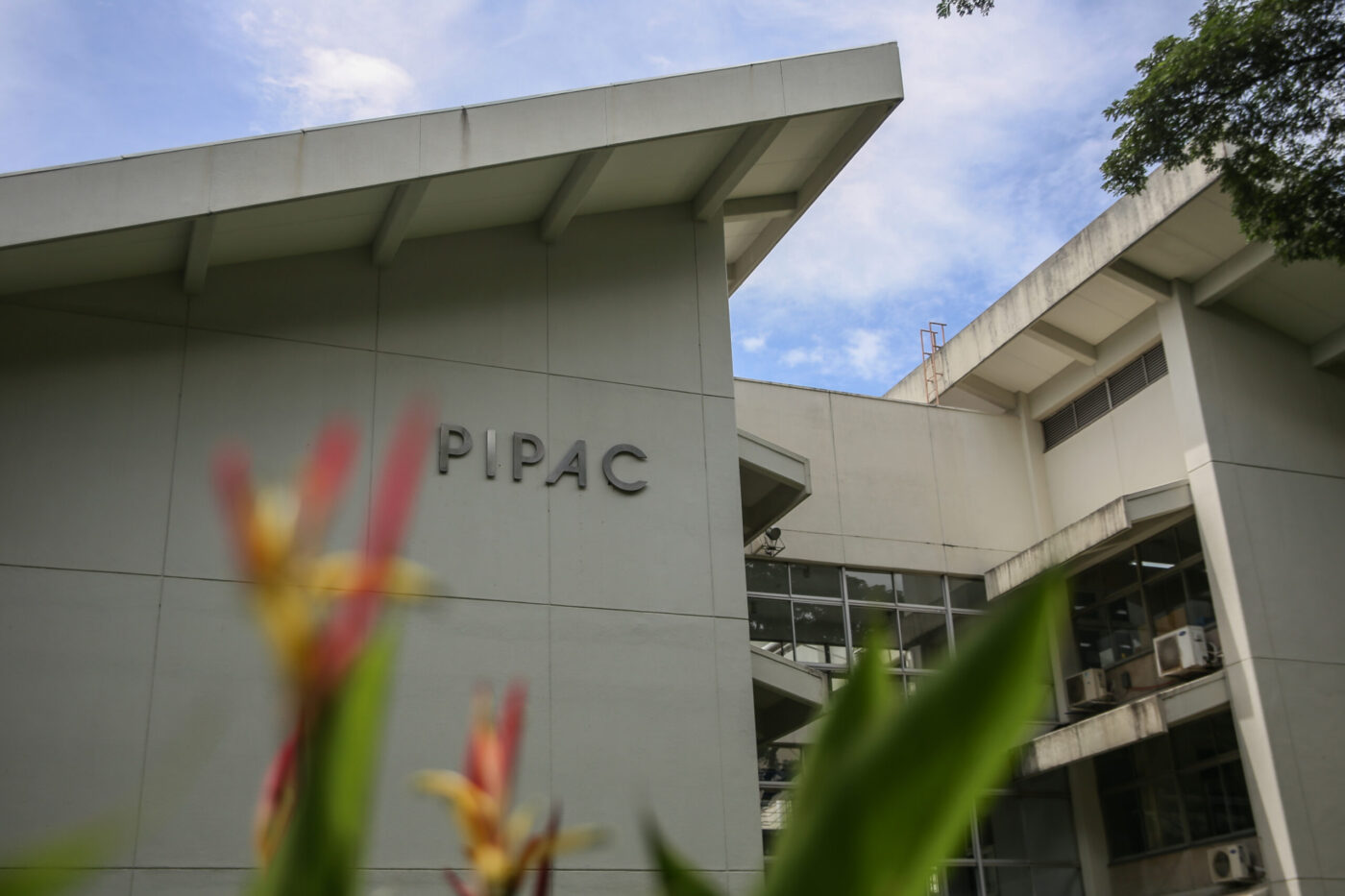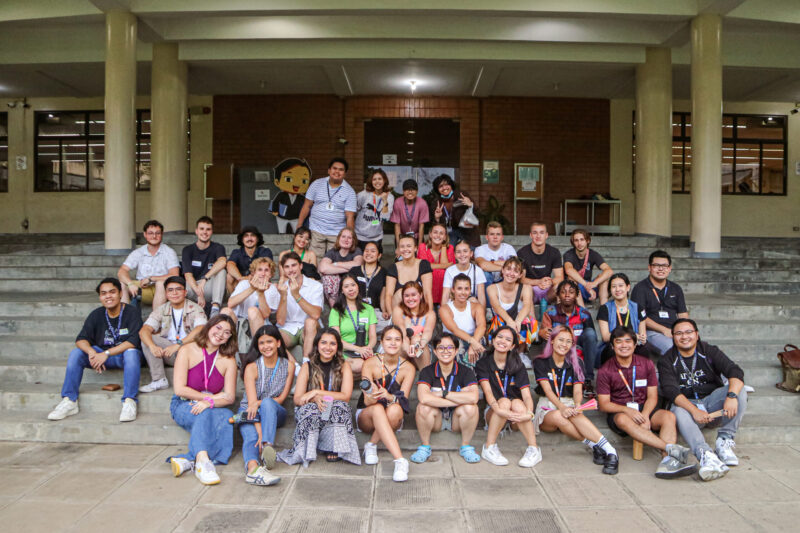NESTLED IN the heart of the Ateneo de Manila University, the Philippine Institute of Pure and Applied Chemistry (PIPAC) presents itself as a prominent white structure adjacent to the Schmitt building. Despite its pivotal role in the field of chemistry, PIPAC often goes unnoticed within the university landscape.
Unbeknownst to many students who walk by its building, PIPAC is a powerhouse of chemical analysis, research, and training, given its significant contributions to the quality, efficiency, and safety of chemical products in industries and government agencies. Its influence extends beyond campus, spearheading groundbreaking research and development in chemical and microbiological testing and technical consultancy.
Pioneering the future
The distinct vision for PIPAC was firmly planted by Chemistry Department Professor Emeritus Modesto T. Chua, PhD. A distinguished alumnus, Chua graduated Magna Cum Laude with a double major in Philosophy and Chemistry in 1957 and furthered his studies at the University of Bonn in Germany. There, he witnessed firsthand the inextricable linkages between academia and industry, a paradigm then unfamiliar in the Philippines. Such a linkage entailed a mutualistic relationship in which resources from the academe served as tools to accommodate the scientific and technological needs of industry.
Spurred by the lack of local, independent, and chemically-oriented testing laboratories, Chua proposed his idea to Alexander von Humboldt Foundation Secretary-General Heinrich Pfeiffer, PhD. Through joint efforts, the Philippine Institute of Industrial Chemistry was established in 1972 and later renamed PIPAC in response to its expanding operations.
By 1974, Chua approached the Japanese International Cooperation Agency (JICA) with a proposal for capital grants to enhance equipment and infrastructure as a demonstration of his commitment to PIPAC’s development. This persistent effort bore fruit in 1983 when the grant was approved, leading to the construction of a three-story building equipped with state-of-the-art training rooms and laboratories, further solidifying PIPAC’s position as a leading center for chemical research and analysis.
Until now, PIPAC remains dedicated to upholding the Academe-Government-Industry interface and its sizable contribution to national development. It supports educational institutions, including the University of the Philippines, the University of Santo Tomas, and the Philippine Science High Schools, by providing essential analysis and assistance for research initiatives.
PIPAC ensures a product’s adherence to industrial standards by serving as an accredited testing laboratory for government agencies. These agencies include the Food and Drug Administration (FDA), the Environmental Management Bureau, and the Department of Science and Technology. Furthermore, the institute extends its expertise to both private and public sectors, offering advanced equipment and facilities for reliable and cost-effective chemical and microbiological analysis.
Celebrating excellence
In its journey towards innovation and sustainability, PIPAC has made remarkable yet often unobserved contributions to the Philippines. In 1984, PIPAC explored renewable energies, working with Philippine fuel companies to determine the effectiveness of Dieselite, a biofuel extender.
Demonstrating its dedication to sustainable development, PIPAC also played a critical role in validating Boysen Paints’ environmentally-friendly paint line, KNOxOUT, which effectively reduces air pollutants. This innovation led to the adoption of KNOxOUT in pollution-challenged areas of Metro Manila, such as those alongside EDSA and other major thoroughfares.
In its relentless pursuit of chemical safety and innovation, PIPAC has become a key player in safeguarding public health and bolstering various industries in the Philippines. With a rigorous approach to chemical analysis, the institution has been instrumental in detecting heavy metal traces in fertilizers for the Fertilizer and Pesticide Authority by analyzing toxicity in consumer products for the FDA.
Even beyond fertilizer and water supplies, PIPAC comprehensive testing has safeguarded health standards even in the local fishing industry. As a result, Philippine tuna exports were allowed entry into competitive international markets, including Japan, the United States of America, and other European countries, providing a substantial boost to the national tuna industry.
Undoubtedly, the institute’s contributions to public health are far-reaching, and PIPAC’s efforts continue to improve pharmaceutical standards as well. A notable collaboration with Lorna Arao-de Leoz, PhD, Gisela P. Concepcion, PhD, Lourdes J. Cruz, PhD, and Mary Ann A. Endoma-Arias, PhD led to the optimized synthesis of Mitoxantrone, a critical pharmaceutical used in chemotherapy.
This partnership has been instrumental in adapting the drug’s production to suit the local environment and resource capacity of the Philippines. Moreover, PIPAC’s work with Unilab in developing and analyzing pharmaceutical products like Sambong and Lagundi underscores its commitment to ensuring the highest standards of public health.
PIPAC’s meticulous attention to detail extends to monitoring methanol levels in alcoholic beverages for consumer safety. PIPAC Institute Director Armando Victor Guidote, Jr., PhD, points out the severe risks of high methanol levels, including blindness and fatality, as tragically evidenced in a 2018 incident involving Lambanog.
Currently, PIPAC is at the forefront of developing detection methods for per-fluoroalkyl and poly-fluoroalkyl substances found in packaging materials, which has been a growing environmental and health concern for fertility and development, as well as being linked to various cancers.
While international confidentiality norms limit public exposure to its work, PIPAC continues to be a driving force in the nation’s scientific advancement. The institute’s ongoing research and collaborative efforts lays a robust groundwork for future scientific endeavors, inspiring a new generation of researchers and students.
Foundations for tomorrow
Beneath its stark white walls, the institution embodies a profound legacy where science meets the humanities, reflecting the university’s core values. This embodiment of resilience and selfless dedication is a true reflection of the Atenean ethos, committed to developing persons-for-others by hosting seminars and workshops for efficient yet quality chemical analysis available to universities and client companies.
In True Blue: The Story of PIPAC, founder Dr. Chua reflects on PIPAC as “an outreach endeavor for national development and community service.” Director Guidote underscores that PIPAC’s impact extends beyond its services to Philippine society. Overall, Guidote refers to PIPAC as a stalwart emblem of “scientific service for the nation” that continuously works toward technological progress by taking active roles in often underfunded scientific research and development areas.Despite the veil of mystery often cloaking PIPAC, its Academe-Government-Industry interface proves viable for ushering in an era of heightened scientific achievement that benefits the people. The creation and continued operation of the center are an evident display of the Atenean’s endeavor for magis in cultivating further national development.







